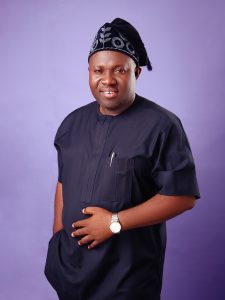
“I aim to donate at least $50,000 towards youth empowerment and entrepreneurship in the next two years.”— Engineer (Dr.) George P.S. Iwo
In this interview, he delves into the formative experiences that ignited his passion for youth development, environmental conservation, Church involvement, and filmmaking. He offers valuable insight into his work with young people, his plans for the future, and practical tips on how to overcome the pressures of seeking instant wealth
It’s good to meet you Sir; can you please introduce yourself and briefly describe what you do?
I am Engineer (Dr.) George Papamie Sunday Iwo. I currently serve as chairman (board of directors) for two indigenous companies and the board of trustees for an NGO in the Niger Delta. Apart from my professional commitments, I maintain an active social network and am a devoted Christian. Philanthropy is a key aspect of my life, and I am committed to bringing happiness to faces of those around me. My down-to-earth nature allows me to connect with people easily, and I strive to make a positive impact to the best of my ability.
Engineer (Dr.) George, that’s impressive. With so many commitments, how do you manage to juggle everything?
Managing all my commitments hasn’t been easy, but I prioritize planning. However, I also acknowledge that sometimes the body needs rest, and I adjust my plans accordingly. Delegation is also crucial, and I use my phone as a mini office to send and receive messages, emails, and give instructions from wherever I am.
While some commitments may be heavier than others, I try not to neglect any of them and involve myself to the best of my ability. I am determined to succeed, and I plan and involve myself extensively, even on weekends when I should rest. So far, I have managed to handle everything without fail.
It’s inspiring to see how structured you are, and how it helps you manage your commitments so well. Your dedication to humanitarian services is also commendable. I would love to learn more about what drives your passion for this cause. Was there a specific event that ignited your interest in humanitarian work, and how did it change your life?
Growing up in a Christian household with a father who was a reverend, I was taught to understand that no matter how well or bad we think we are, there will always be people who are better or worse off than us. My upbringing instilled in me the importance of being down to earth and helping others to the best of my ability. This spirit of being our brothers’ keeper has been a part of my family’s values for as long as I can remember. That’s where my passion for humanitarian services stemmed from. But my involvement in youth development began during my professional career when I was chosen to lead the young professional section of the Society of Petroleum Engineers (SPE) in the Port Harcourt section, which covered several states in Nigeria. The young graduates in this group were passionate and energetic but lacked a platform to thrive. I initiated programs that spurred their growth and success, but it caused some tension with the older professionals who felt threatened by the younger generation’s potential to displace them. They started to call me to order. They said if I continue to help the young professionals grow, they’d become redundant, so I should take it easy. But that notwithstanding, I have been actively involved in helping young people within and outside Nigeria, and my passion for youth development has never wavered. Looking back, I am proud to say that I was the first pioneer SPE young professional chairman not only for the Port Harcourt Section but also the whole of Nigeria. That experience was the catalyst that inspired me to become a change agent for many young professionals within and outside Nigeria.
So, your humanitarian inclinations were influenced first by your father, while your involvement with youth was sparked by your role as the SPE Young Professional Chairman. It is quite impressive to hear how your involvement with young professionals led to a surge of passion and motivation among them, which in turn make the older professionals, recognized the need to stay competitive, otherwise they risked being surpassed by the younger generation–you kept them on their toes—
I kept them on their toes. And now young professionals are leading the way. They still refer to me as “Young Professional Papa” and even nicknamed me “George Iwo – No Dull Moment”.
Did you not ever feel intimidated by the growth of the younger professionals and their potential to take over?
I wasn’t intimidated. At that time, the section was uninteresting. I was only revitalizing a drab section OF SPE by injecting new programs, but some seniors felt intimidated and accused us of breaking the law. Because of their fear, when I was nominated to chair the whole section, I faced opposition and it took years before I was elected.
Innovative juniors can often intimidate some senior members. Going further, how has your involvement in the NGO impacted your perspective on the role of businesses in society?
My NGO focuses on environmental issues. It was born out of a friend’s experience with oil spillage that killed fish and impacted the community. The formation of the NGO was inspired by a powerful experience that a friend of mine had while fishing with her father. They came across dead fish floating on the river, which they later discovered were victims of oil spillage. As their tradition forbids eating dead fish and there were no live fish to catch, they were left without any source of food. This incident ignited my friend’s anger towards the government’s inaction towards environmental degradation. She shared her thoughts and ideas with me, and that was how we started our NGO. We aim to educate and advocate for remediation in Niger-Delta. With a 12 goals agenda, the NGO has expanded my knowledge, skills, and network. I often link my experiences with the Niger-Delta to my business conversations, creating awareness on environmental issues and the government’s role in mitigating them. The NGO has given me a voice to speak about the environment and stands tall with numerous impacts.
The Niger Delta’s environmental degradation and oil spillage is a long-standing issue, and I commend your efforts to bring solutions to it. What specific projects have you worked on and what challenges have you encountered
We’ve introduced scholarships to at least three schools, educating students about environmental degradation and awarding scholarships to the top three performers. We also visited a remote community and awarded scholarships to bright children. We’ve planted over 400 quality trees in the Niger Delta and plan to plant 100 each year for the next five years. We’re organizing a marathon to engage idle youths in sporting activities and reduce air pollution. Through our Eco Reel project, we teach youths different skills such as acting and bread making, and some have even been incorporated into my movie productions. We’ve also visited elderly communities, offering drug donations, food, and other materials, particularly to those who are handicapped. Our Eco Business project involves mentoring young entrepreneurs and awarding startup funds to the most viable proposals. We have more projects coming up, such as Eco Green, Eco Justice, Eco Culture, and others, which can be found on our website tildagoesgreen.org. Our NGO is called TILDA GOES GREEN (TGG).
Your ability to effortlessly list all these projects is a testament to the extensive work you and your team are doing. It’s impressive.
Thank you, we are indeed putting in a lot of effort to make a positive impact in our community.
I think it’s commendable that you are working at the grassroots level and empowering people to make a difference. Have you had any collaboration with the government to further your initiatives?
It’s quite ironic. Despite our expectation that our environmental initiatives would be highly appreciated by the government and influential individuals, we haven’t received any assistance or partnership from them. We’ve reached out to several people and organizations including government bodies like NDDC and even the United Nations, but it’s all been in vain. We even participated in a movie competition with the United Nations, but we’re yet to receive any feedback. We’ve only received a donation of 100,000 naira from individuals during the movie launch, and the rest of the funding has been from our own pockets.
Let’s pray that the government will pay attention to your good work soon.
I hope so too.
One of the things you said that caught my attention is that you produced movie—how and what kind of movies?
My movie is actually on Netflix right now. Although I’m not fully into the movie, you may not even see my name as an executive producer, because while I was working there was conflict of interest. So, my name may just appear under the appreciation list
Can you tell the name of the movie?
It’s called UNROYAL. I’ve also produced a movie called “DOMESTIC LUNATICS” which premiered last week. There are other movies of mine available on YouTube and Netflix that you can check out.
Impressive, so you have Netflix-standard movies?
Yes, and I plan to produce another one between now and next year. The previous one received great reviews.
That’s fascinating! Looking ahead, what do you believe are some of the most pressing issues confronting young people today, and how do you believe they can be addressed?
The main challenge faced by young people today is their inability to become independent, leading many to seek out quick and alternative means of becoming wealthy. This “get-rich-quick” mentality is prevalent in this generation and was not as common when I was young. I believe this could be influenced by the media, but it’s concerning nonetheless. I’ve spoken to many young people and made them realize that easy come, easy go. My advice to them is to remain patient, focused, determined, and passionate about their goals.
The prevalence of the get-rich-quick syndrome among the youth is alarming. This could be attributed to the high competitiveness of this generation and the strong influence of the internet on their decision-making. Additionally, the lack of access to jobs, capital, and mentorship is also a major issue faced by many young people today.
You’re right. Mentorship is a crucial aspect of personal development. I’m currently mentoring several youths both locally and internationally. However, I have noticed that many Nigerians misconstrue mentorship for sponsorship and a shortcut to achieving quick results. It is important for them to understand the true essence of mentorship.
How do you measure the impact of your work in the youth development and humanitarian space, and what metric do you use?
My mentorship has had a high impact on many young people, leading to significant changes in their attitudes and growth. I focus on teaching self-independence, as I believe this is key to success. Since I cannot employ all of everyone, I teach them skills and how to start small businesses, which many have found success with. I also have a strong passion for humanitarian work and giving back to those around me. My efforts have been recognized with several awards, including the Hollywood African Prestigious award from Haper Award, which was signed by the house of common. I find extreme joy in putting smiles on people’s faces and have shed tears of happiness from seeing the impact of my work. When I compare myself to my peers, I see that many of them are not as dedicated to humanitarian work, which motivates me to continue doing good.
I appreciate your emphasis on the importance of patience and determination in achieving success earlier on. It’s unfortunate that many young people face challenges in starting businesses and lack mentorship to guide them. For those who are jobless and struggling to become self-independent, what advice would you give to help them stay motivated and avoid falling into negative and potentially harmful tactics due to frustration?
As someone with a Christian background, I believe it’s important to involve God in everything we do. Additionally, failure shouldn’t be a reason to give up. I have had cases where I gave capital to someone four times without any positive results. However, I sat down with the person and identified that he lacked discipline. Many people lack the discipline to consistently do the right things that lead to success. Some also don’t involve God in their endeavors, thinking they can achieve everything on their own because of their education. Ignorance is another challenge I have noticed. I have come across young people who don’t know what to do with capital when they receive it. Just yesterday, I met a bright young man seeking my mentorship. I have given him his first task: to think about what he wants to achieve and commit to being disciplined, focused, and passionate. If he does so, I will guide and support him to succeed. I agree that trials and temptations will come, but I never give up on people.
It’s great to hear that you find fulfillment in helping others. But why do you think some wealthy people don’t feel the need to help?
I don’t like to judge others. Some people may have their own ways of providing help. I have friends who have different approaches, and I let God be the judge. Personally, I believe in helping others and it brings me joy.
It’s been enjoyable chatting with you, and I’m happy to keep the conversation going. I’d like to know What advice you would give to young people who are interested in pursuing a career that combines business and social impact?
Over the past few months, I have been mentoring four individuals to create social impact, and I’ve come to realize just how important it is for the world. In today’s social media era, making a difference can even lead to financial gain. I strongly encourage young people to utilize social media as a tool to create positive change, whether it be through content creation, marketing socially responsible products, or engaging with communities online. It’s crucial to have a sense of purpose and pursue it actively rather than mindlessly scrolling through social media. I strongly advocate for individuals to stay socially informed and involved in order to make a difference in the world.
Truly, social media is becoming a lucrative platform. Meanwhile, in your experience, what are some of the most effective ways to engage and inspire young people to get involved in social causes?
The best way to engage and inspire young people these days is through the internet and social media. Creating content with a touch of humor can be effective in grabbing their attention. Additionally, young people need support and mentorship to become inspired and make a social impact. It’s important to catch them young and guide them towards making a difference.
Your dedication to youth development and humanitarianism is admirable. What are your goals and aspirations in these areas for the future?
I have several plans in place that I hope to execute through my NGO. One of my upcoming projects is a marathon, and I have other programs lined up for young people. Due to my other commitments, I plan to execute one project per quarter. In the first quarter, I completed a project and submitted it for approval to the UN. I’m also exploring the idea of organizing seminars that offer incentives, similar to what I’ve done with SPE. Additionally, I currently sponsor 20 individuals in my church, and I plan to extend this scholarship program to benefit even more young people. Overall, I aim to donate at least $50,000 towards youth empowerment and entrepreneurship in the next two years.
Thank you for sharing your valuable insights with us today. For young people who are interested in collaborating with you, volunteering for your NGO, seeking mentorship, or participating in your programs, is there a way to contact you?
I would be happy to help young people who reach out to me genuinely. Although I have a long list of people seeking mentorship on my desk, I can create time for those who are sincere. You can reach me through my website, tildagoesgreen.org, or my LinkedIn profile, https://www.linkedin.com/in/georgeiwo.
Engineer Dr George Papamie Sunday Iwo is a distinguished oil magnet who has made an indelible impact in Nigeria’s oil and gas industry. With his impressive leadership skills, he currently serves as the chairman of two indigenous companies and the chairman board of trustees for Tilda Goes Green TDD. An NGO focused on environmental and conservation in the Niger Delta Region. Beyond his professional commitments, he is a movie producer, an active member of his social network and a devoted Christian who is passionate about philanthropy and youth development. Through his mentorship programs and generous donations, he has touched countless lives and brought smiles to faces around him
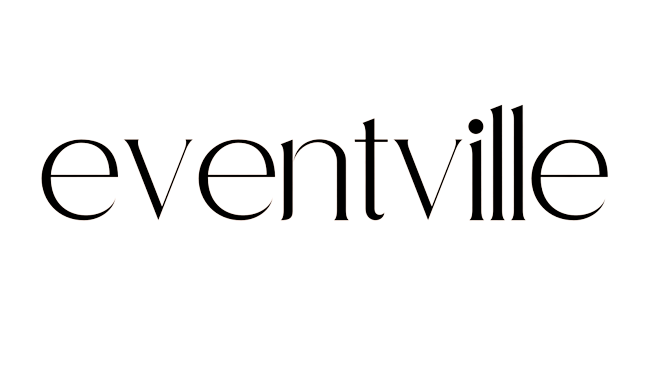
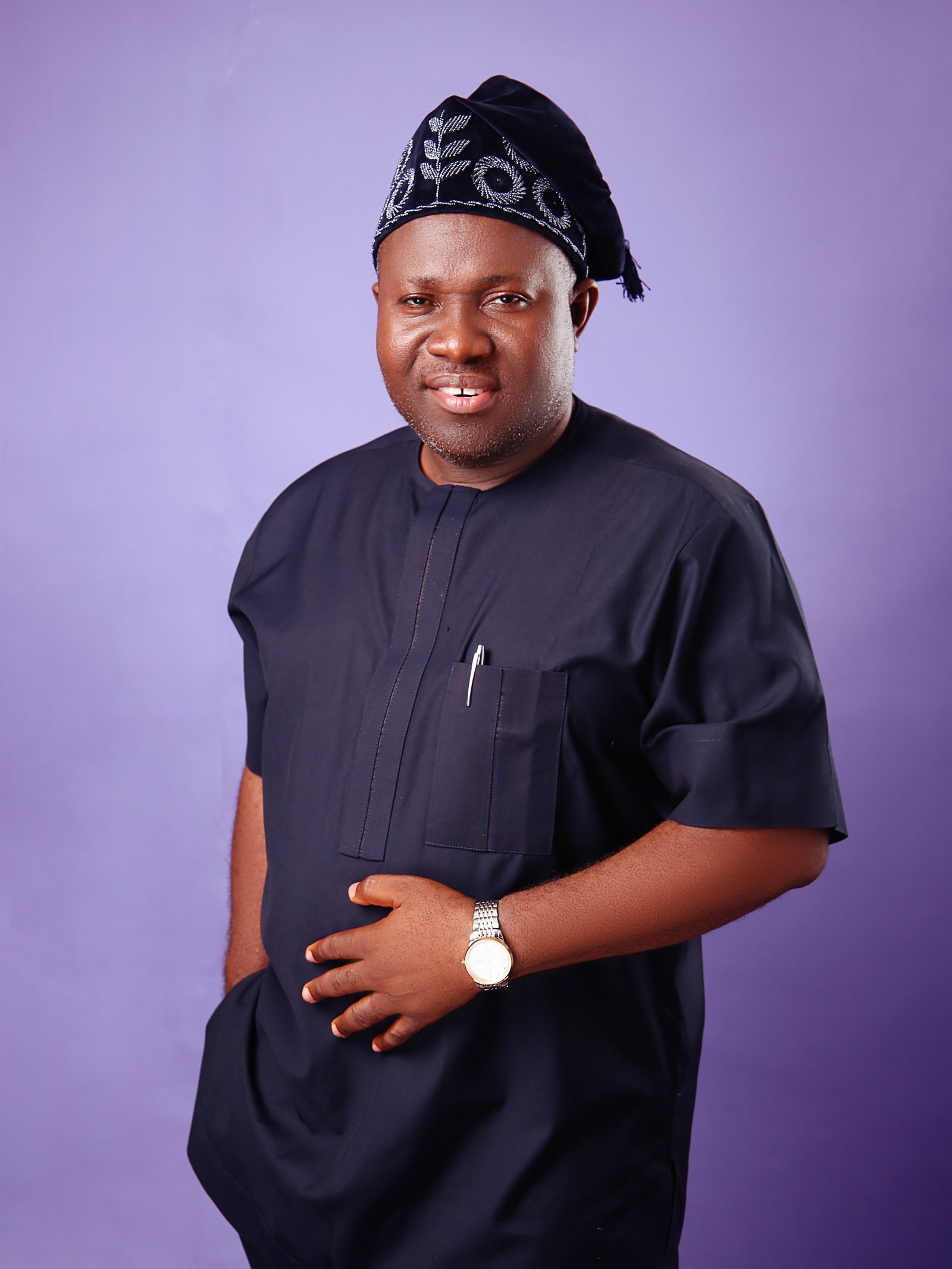
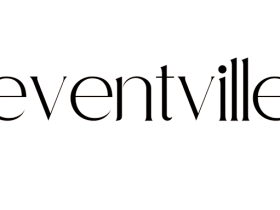
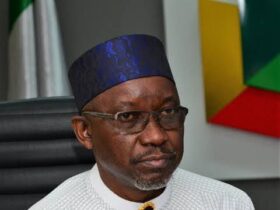
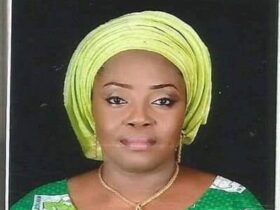
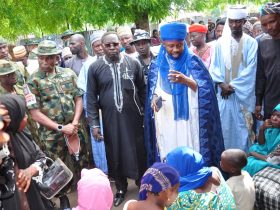
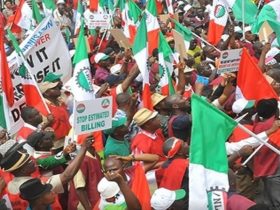

Leave a Reply